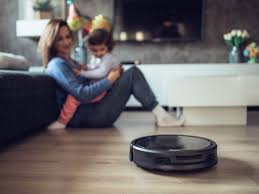In the rapidly advancing field of healthcare technology, medical smart devices stand out as pivotal innovations transforming patient care and medical practices. These devices, ranging from wearable sensors to advanced diagnostic tools, integrate with digital health platforms to monitor, diagnose, and manage health conditions more effectively. Their relevance cannot be overstated, as they promise enhanced accuracy, real-time monitoring, and improved patient outcomes.
Types and Categories of Medical Smart Devices
- Wearable Devices
- Fitness Trackers: Monitor physical activity, heart rate, and sleep patterns.
- Smartwatches: Combine fitness tracking with other health monitoring features like ECG.
- Biosensors: Wearable sensors that measure specific biomarkers.
- Implantable Devices
- Pacemakers: Regulate heartbeats.
- Insulin Pumps: Deliver precise insulin doses.
- Neurostimulators: Treat neurological disorders.
- Diagnostic Devices
- Smart Glucometers: Monitor blood glucose levels.
- Portable ECG Devices: Provide real-time cardiac monitoring.
- Digital Stethoscopes: Enhance heart and lung sound analysis.
- Therapeutic Devices
- Smart Inhalers: Track and optimize inhaler use for asthma patients.
- Connected Hearing Aids: Improve hearing aid performance through connectivity.
- Robotic Surgery Tools: Assist in precision surgeries.
- Remote Monitoring Devices
- Telehealth Kits: Enable remote consultations and monitoring.
- Home Diagnostic Kits: Allow patients to conduct basic tests at home.
- Continuous Monitoring Systems: Provide ongoing health data to clinicians.
Symptoms and Signs Monitored by Medical Smart Devices
- Cardiovascular Health
- Irregular heartbeats
- Hypertension
- Blood oxygen levels
- Metabolic Disorders
- Blood glucose fluctuations
- Cholesterol levels
- Body mass index (BMI)
- Respiratory Conditions
- Asthma symptoms
- COPD management
- Oxygen saturation
- Neurological Disorders
- Epileptic seizures
- Parkinson’s disease tremors
- Sleep apnea
- Chronic Pain Management
- Pain levels
- Medication effectiveness
- Physical therapy progress
Causes and Risk Factors Addressed by Medical Smart Devices
- Lifestyle Factors
- Sedentary behavior
- Poor dietary habits
- Smoking and alcohol use
- Genetic Predispositions
- Family history of chronic diseases
- Inherited metabolic disorders
- Genetic markers for specific conditions
- Environmental Factors
- Pollution exposure
- Workplace hazards
- Seasonal allergies
- Age-Related Risks
- Increased risk of cardiovascular diseases
- Bone density loss
- Cognitive decline
- Pre-existing Conditions
- Diabetes management
- Hypertension control
- Chronic respiratory conditions
Diagnosis and Tests Utilizing Medical Smart Devices
- Cardiovascular Diagnostics
- ECG Monitoring: Real-time heart activity analysis.
- Holter Monitors: Extended heart rhythm monitoring.
- Blood Pressure Monitors: Regular tracking of hypertension.
- Metabolic Testing
- Continuous Glucose Monitors (CGM): Frequent glucose level checks.
- Smart Cholesterol Meters: Measure lipid profiles.
- Digital BMI Scales: Track weight and body composition.
- Respiratory Assessments
- Spirometers: Measure lung function.
- Pulse Oximeters: Monitor blood oxygen saturation.
- Smart Inhalers: Track usage and respiratory function.
- Neurological Evaluations
- EEG Headsets: Monitor brain activity.
- Wearable Seizure Monitors: Detect and alert seizures.
- Sleep Trackers: Assess sleep patterns and disorders.
- Chronic Disease Management Tools
- Smart Medication Dispensers: Ensure adherence to prescriptions.
- Remote Monitoring Kits: Continuous health data collection.
- Telehealth Devices: Facilitate virtual consultations.
Treatment Options Enhanced by Medical Smart Devices
- Cardiac Care
- Remote Cardiac Monitoring: Continuous data for heart disease management.
- Smart Pacemakers: Automatically adjust heart rates.
- Wearable Defibrillators: Immediate response to cardiac events.
- Diabetes Management
- Insulin Pumps: Automated and precise insulin delivery.
- Smart Glucometers: Real-time blood sugar tracking.
- Mobile Apps: Integrate diet and exercise data for better management.
- Respiratory Therapy
- Smart Inhalers: Optimize medication delivery.
- Portable Nebulizers: Convenient respiratory treatment.
- Remote Spirometry: Ongoing lung function monitoring.
- Neurological Treatments
- Neurostimulators: Treat chronic pain and movement disorders.
- Wearable EEG: Monitor and manage epilepsy.
- Smart Sleep Aids: Improve sleep quality for neurological patients.
- Pain Management
- Smart TENS Units: Targeted pain relief.
- Wearable Pain Trackers: Monitor pain levels and triggers.
- Connected Physical Therapy Devices: Guide and track exercises.
Preventive Measures Through Medical Smart Devices
- Lifestyle Monitoring
- Fitness Trackers: Encourage physical activity.
- Dietary Apps: Promote healthy eating habits.
- Stress Monitors: Track and manage stress levels.
- Early Detection Systems
- Genetic Testing Kits: Identify predispositions to diseases.
- Routine Health Monitoring: Early signs of chronic conditions.
- Regular Screening Tools: Facilitate timely medical interventions.
- Environmental Health Sensors
- Air Quality Monitors: Alert on pollution levels.
- Allergen Detectors: Manage allergies.
- Radiation Sensors: Monitor exposure in high-risk areas.
- Vaccination and Medication Reminders
- Smart Pillboxes: Ensure medication adherence.
- Vaccination Trackers: Keep up-to-date with immunizations.
- Health Alert Systems: Remind of routine check-ups and tests.
- Chronic Disease Prevention
- Blood Pressure Monitors: Prevent hypertension complications.
- Glucose Monitors: Prevent diabetes-related issues.
- Heart Rate Monitors: Detect early signs of cardiovascular problems.
Personal Stories or Case Studies
- Diabetes Management Success
- Case study of a patient managing diabetes effectively with a CGM and smart insulin pump.
- Improved lifestyle and reduced complications through continuous monitoring.
- Cardiac Health Improvement
- A heart disease patient’s journey with a smart pacemaker.
- Significant improvement in quality of life and reduced hospital visits.
- Chronic Pain Relief
- Chronic pain sufferer’s use of a smart TENS unit.
- Enhanced pain management and reduced dependence on medication.
- Asthma Control
- Asthma patient’s experience with a smart inhaler.
- Better symptom control and fewer asthma attacks.
- Remote Patient Monitoring
- Elderly patient benefiting from remote health monitoring.
- Improved health outcomes and increased independence.
Expert Insights
- Cardiologist’s Perspective
- Importance of continuous cardiac monitoring.
- Future prospects in heart disease management.
- Endocrinologist’s View
- Advancements in diabetes management technology.
- Benefits of real-time glucose monitoring.
- Pulmonologist’s Insights
- Impact of smart inhalers on respiratory care.
- Innovations in lung health monitoring.
- Neurologist’s Opinion
- Neurostimulators and their role in managing neurological disorders.
- Emerging technologies in epilepsy treatment.
- General Practitioner’s Advice
- Integrating medical smart devices into daily health routines.
- Importance of patient education on device usage.
Conclusion
Medical smart devices are revolutionizing the healthcare landscape by providing advanced monitoring, diagnostic, and treatment options. These innovations enhance patient outcomes, improve the efficiency of healthcare delivery, and empower individuals to take charge of their health. As technology continues to evolve, the future of medical smart devices promises even greater advancements, making healthcare more accessible and effective for all.



